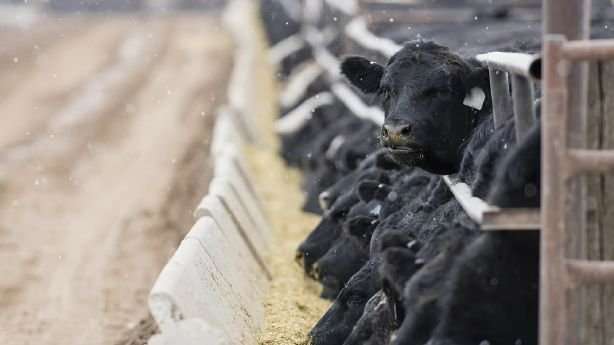Having trouble viewing the video? Try disabling any ad blocking extensions currently running on your browser.
SALT LAKE CITY — A federal judge struck down Utah's so-called "ag gag" law Friday, ruling it violates free speech rights.
"Utah undoubtedly has an interest in addressing perceived threats to the state agricultural industry, and as history shows, it has a variety of constitutionally permissible tools at its disposal to do so," U.S. District Judge Robert Shelby concluded in a 31-page ruling.
"Suppressing broad swaths of protected speech without justification, however, is not one of them."
The Utah Legislature approved a bill in 2012 that made it a class B misdemeanor to trespass on private livestock or poultry operations and record sound or images without the owner's permission. It also prohibited seeking employment with the intent of making those recordings. Leaving a recording device for that purpose was a class A misdemeanor.
The law did not criminalize the possession or distribution of unlawful recordings, but focused on trespassing and filming while on the property, according to the state.
The Animal Legal Defense Fund, People for the Ethical Treatment of Animals and several individuals claimed the law violated their rights to free speech and equal protection. They argued the law criminalizes undercover investigations and videography at slaughterhouses, factory farms and other agricultural operations, and silenced speech that is critical of the industry.
Amy Meyer, a Salt Lake animal rights activist who is among those who challenged the statute, was the first and apparently only person in the country charged under an ag gag law.
Meyer filmed workers pushing what appeared to be a sick cow with a bulldozer at the Dale T. Smith and Sons Meat Packing Co. in Draper. Police cited her with agricultural operation interference. Prosecutors dropped the charge when Meyer showed them evidence that she didn't trespass on private land.
"I was shocked when I was the one charged with a crime instead of that animal’s abusers. It should never be a crime to tell the story of an animal who is being abused and killed, even if it’s for food. Today’s court ruling is a vindication for anyone who stands up for what’s right and tells the truth," Meyer said in a statement.
Meyer's attorney, Stewart Gollan, said Utah lawmakers chose to write a bad law and the judge correctly found it unconstitutional.
"Judge Shelby was right on the law. I think the law was significantly overbroad," Gollan said, adding that he believes there is a high likelihood the state will appeal the decision.
The Utah Attorney General's Office is reviewing the opinion and considering its options, spokesman Dan Burton said.
In his ruling, Shelby recognized the need to protect the agriculture industry but not at the expense of the First Amendment.
"There can be no doubt that today, over 200 years after Washington implored Congress to safeguard the agricultural industry, the industry remains crucially important to the continued viability of the nation," he wrote. "Similarly important to the nation’s continued viability, however, is the safeguarding of the fundamental rights Washington helped enshrine into the Constitution."
Shelby called the Utah law "seemingly not necessary" to remedy the state's alleged harms and an "entirely overinclusive" means to address them.
"It targets, for example, the employee who lies on her job application but otherwise performs her job admirably, and it criminalizes the most diligent well-trained undercover employees," he wrote.
Friday's ruling follows a 2015 federal decision striking down Idaho's ag gag law. The Idaho ruling is being appealed. Nine states have similar laws.
"These unconstitutional laws will fall like dominos,” said Stephen Wells, Animal Legal Defense Fund executive director. “Ag gag laws are flagrant attempts to hide animal cruelty from the American people, and they unfairly target activists trying to serve the public’s interest."

imacanofcoke on July 7th, 2017 at 23:46 UTC »
Hey can we get something similar in NC?
Please and thanks.
GraphicCreations on July 7th, 2017 at 23:06 UTC »
This article is pretty brief and not very concise. Can people film in factory farms or not? It says strikes down which to me means they can film there.
DyingWish on July 7th, 2017 at 22:36 UTC »
Maybe if you need to muzzle your critics, your critics might have a point.